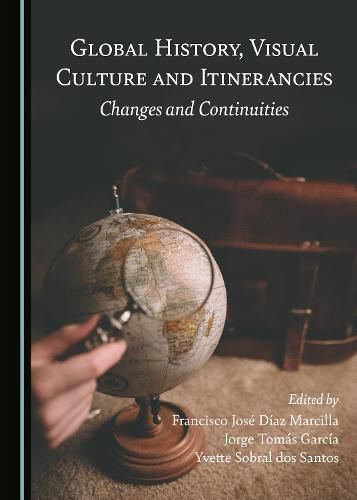Readings Newsletter
Become a Readings Member to make your shopping experience even easier.
Sign in or sign up for free!
You’re not far away from qualifying for FREE standard shipping within Australia
You’ve qualified for FREE standard shipping within Australia
The cart is loading…






National studies have demonstrated their inability to correctly understand global phenomena, and the way in which they affect societies. This chronologically ambitious book investigates methodological and theoretical issues from Roman times to the present, in terms of globalization. In this context, one of the most relevant parameters of change emerges: the itinerancy of culture and knowledge. Therefore, this volume argues that itinerant agents carry with them cultural baggage, transporting and transmitting it to other spaces. In this way, interconnection begins, producing active changes in global history and visual culture. Contributions to this book focus on comparative studies, the evolution of global phenomena, historical processes in their diachrony, regional studies, changing economies, cultural continuities, and methodological questions on globalization, among others. In addition, the book opens with a contribution from Professor Peter Burke.
$9.00 standard shipping within Australia
FREE standard shipping within Australia for orders over $100.00
Express & International shipping calculated at checkout
National studies have demonstrated their inability to correctly understand global phenomena, and the way in which they affect societies. This chronologically ambitious book investigates methodological and theoretical issues from Roman times to the present, in terms of globalization. In this context, one of the most relevant parameters of change emerges: the itinerancy of culture and knowledge. Therefore, this volume argues that itinerant agents carry with them cultural baggage, transporting and transmitting it to other spaces. In this way, interconnection begins, producing active changes in global history and visual culture. Contributions to this book focus on comparative studies, the evolution of global phenomena, historical processes in their diachrony, regional studies, changing economies, cultural continuities, and methodological questions on globalization, among others. In addition, the book opens with a contribution from Professor Peter Burke.